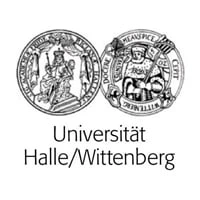Martin-Luther-Universität Halle-Wittenberg
Germany | Halle, Germany

Germany | Halle, Germany


The Martin Luther University of today evolved from two universities: one established in Wittenberg in 1502 and the other in Halle in 1694. Both institutions experienced a rich and tumultuous history with many challenges. Wittenberg became the intellectual hub of the Reformation, with Luther and Melanchthon teaching there. In the early 1700s, Halle emerged as a significant centre for the German Enlightenment, thanks to the work of philosopher Christian Wolff and lawyer Christian Thomasius. In 1813, Napoleon shut down the Wittenberg university, and following territorial changes after the Napoleonic Wars, both universities were merged in Halle in 1817. After celebrating Halle University's 300th anniversary in 1994, the 500th anniversary of Wittenberg’s foundation was marked in 2002. Over its long history, the University has expanded alongside the city of Halle, incorporating historical buildings and modern facilities. Many institutes and clinics now feature state-of-the-art equipment, with new buildings and renovations enhancing the university’s resources.
Martin-Luther-Universität Halle-Wittenberg (MLU) is a prominent university in Germany, recognized for its academic excellence and research contributions. In the QS World University Rankings 2025, MLU is positioned between 671st and 680th globally. In the Academic Ranking of World Universities (ARWU), also known as the Shanghai Rankings, MLU holds the 401st position worldwide.
According to the US News Best Global Universities Rankings, MLU is ranked 560th globally.
No courses available for this university.